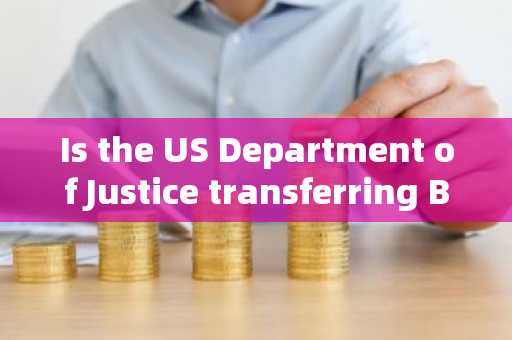Is the US Department of Justice transferring Bitcoin for custody purposes? Financial Lawyer: Transfe
The bitcoins confiscated by the US Department of Justice from the Silk Road case have undergone multiple transfers over the past year, with the most recent one occurring early yesterday morning. Two weeks ago, a wallet address that received 10000 bitcoins (worth nearly $600 million) from a US government wallet address sent the bitcoins to Coinbase Prime.

Some analysts believe that although the US government's deposit into exchanges usually indicates an intention to sell assets, in this case, the transfer may be for custody reasons, as the US Department of Justice's subordinate agency, the US Marshals Service, announced last month a partnership with Coinbase Prime to "protect and trade" large digital assets.
However, financial lawyer Scott Johnsson believes that the US Department of Justice is definitely selling these bitcoins instead of 'custody'.
Scott Johnsson cited the service agreement signed between the United States Marshals Service (USMS) and Coinbase in June, which states that USMS assets must be completely isolated and cannot be stored in its exchange account for long periods of time, including cryptocurrency or sales proceeds. This indicates that when cryptocurrency is transferred to an exchange account such as Coinbase Prime, it must be quickly liquidated (i.e. sold) and cannot be kept in that account for long periods of time. The agreement states:
USMS intends to address this issue through its planned cryptocurrency service contract, which will require contractors to liquidate cryptocurrency within 5 working days after assets are confiscated
In other words, when these assets are ultimately transferred to Coinbase Prime (or other hybrid exchange addresses), it can be confirmed that USMS has already sold or is about to sell these bitcoins.
Finally, Scott Johnsson stated that in order to obtain official confirmation from the US Department of Justice, it would be provided no later than in the 2024 fiscal year report on the Department of Justice's (DOJ) asset confiscation program, which will be released in January next year.
